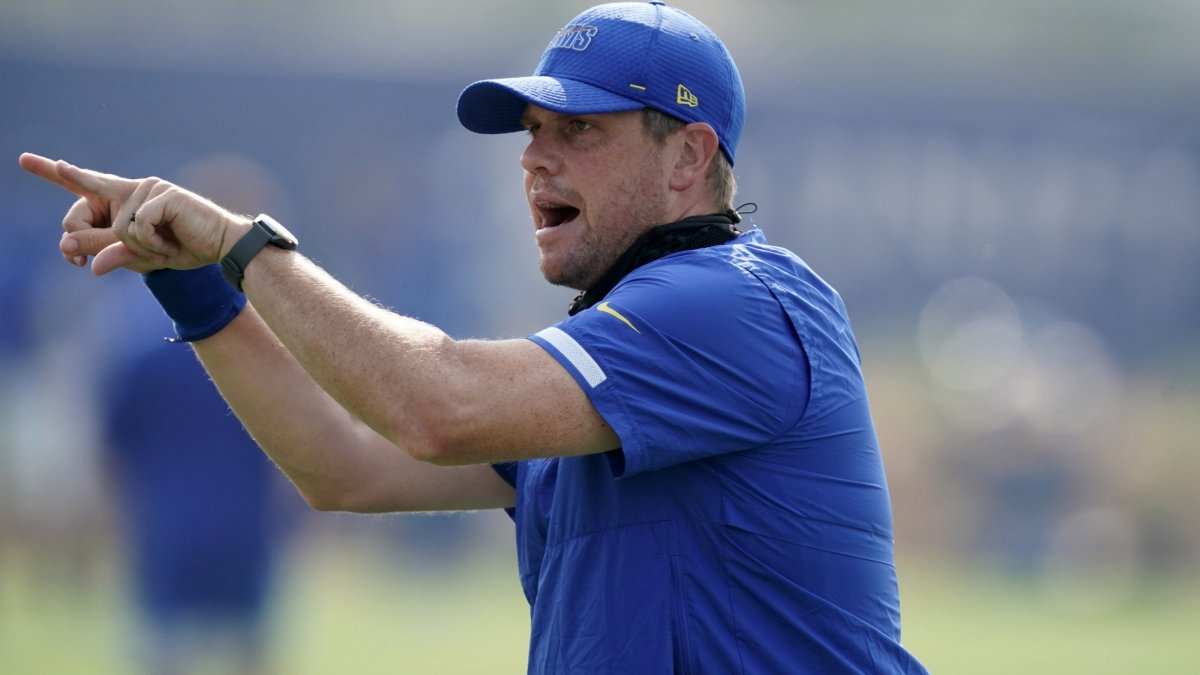Shane Waldron is the latest name to be picked off the Sean McVay coaching tree.
Much will be made of the Seattle Seahawks offensive coordinator and his possible implementation of jet motion and outside zone, but it seems unlikely Pete Carroll felt his offense was missing innovation in the run game that Waldron could solve.
Only six of Seattle’s run snaps involved jet motion this preseason. The Los Angeles Rams ran seven such plays, so it’s possible Seattle has an entire package of offense laying in wait, but Waldron was the passing game coordinator for McVay in Los Angeles with Jared Goff, and his tenure will be judged by what he calls when quarterback Russell Wilson has the ball in his hands.
Click here for more PFF tools:
Fantasy Draft Kit | PFF Betting Dashboard | PFF Fantasy Rankings
PFF Fantasy Projections | NFL Premium Stats | Win Totals Tracker
Wilson doesn't lack much as a passer in the prime of his career. He ranked sixth in passing grade in 2020 (88.6), tossed the second-most touchdowns (40) and placed fourth in adjusted completion rate (79%) among quarterbacks with at least 100 dropbacks. Even with this production, he still ranked second in scrambles and took the third-most sacks. While no one in their right mind would want to take away Wilson’s ability to create and extend plays in the passing game, it would serve Seattle’s best interest to allow Mr. Unlimited to be efficient in his work before the snap and find quick throws.
Russell Wilson vs. Jared Goff | Since 2018, all dropbacks
| Passing Grade | Big-Time Throws | Adjusted Completion % | Average Depth of Target | Air Yds % | |
| Russell Wilson | 93.6 | 118 | 78% | 9.5 | 60% |
| Jared Goff | 81.2 | 73 | 75% | 8.0 | 51% |
The past three years Shane Waldron spent as the passing game coordinator serves as evidence he can challenge Wilson to add a dimension to his game he hasn’t spent much time with lately: working out of empty formations. There are different schools of thought as to why an offense gets into empty. The Baltimore Ravens, for example, use it as a polar opposite to their base offense of multiple backs and tight ends.
Everything about the Ravens' offense tries to force a defense into static, predictable looks. If the right look doesn’t present itself, the quarterback is athletic enough to be his own checkdown. For teams like the Pittsburgh Steelers, the signal-caller is a trusted veteran who looks to get the ball out of his hands quickly to increase the likelihood of yards after the catch.
In either approach, you run into the dangers of predictability. Baltimore’s passing offense isn’t deep enough schematically to live in empty, and Pittsburgh’s overreliance on underneath passing to compensate for the bad run game cost the team late in the season. Wilson’s skill set gives Seattle an opportunity to find the healthy midpoint between the two approaches, but the quarterback will have to go outside of his comfort zone to make it happen.
Exclusive content for premium subscribers

WANT TO KEEP READING?
Dominate Fantasy Football & Betting with AI-Powered Data & Tools Trusted By All 32 Teams
Already have a subscription? Log in




 © 2025 PFF - all rights reserved.
© 2025 PFF - all rights reserved.